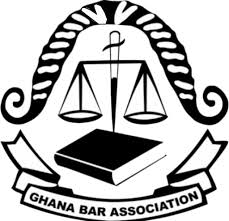Lawyers now require licenses to engage in real estate transactions
Although lawyers are exempt from writing the real estate licensing exams by virtue of section 24(1) of the Real Estate Act, lawyers are part of the group of person under obligation to apply for a license in order to engage in real estate practice which includes real estate transactions.

Shocking but real, Lawyers in Ghana are henceforth required to apply for and be granted either a Real Estate Agent or Broker license by the Real Estate Agency Council before they can engage in real estate transactions.
This absurd regime has been put in place by the Real Estate Agency Act, 2020(Act 1047) which gives a floodgate definition of a real estate transaction to be the process by which a right in a unit of property is transferred between two or more parties and in the case of a conveyance involves one party being a seller and the other being a buyer. (See Section 57 of the Act)
The Law further states that to engage in such transactions one must be a licensed real estate agent or broker. Section 54 of the Act further criminalizes the act of engaging in real estate transactions without a license and the punishment for it is a fine of not less than five thousand penalty units and not more than ten thousand penalty units or to a term of imprisonment of not less than five years and not more than ten years, or both.
Although lawyers are exempt from writing the real estate licensing exams by virtue of section 24(1) of the Real Estate Act, lawyers are part of the group of person under obligation to apply for a license in order to engage in real estate practice which includes real estate transactions.
Speaking at a workshop on the theme: “Understanding the New Legal Order of Real Estate Business in Ghana” organized by the Corporate Secretarial Training Services(CSTS) on Friday, August 13, 2021, at Tomreik Hotel, a private legal practitioner, Mr. Dennis Adjei Dwomoh indicated that the above position of the law presents a conundrum for lawyers because the definition of a real estate transaction is so broad that it covers practically all types of transactions involving any form of real property.
Touching on the dual licensing regime for lawyers, he indicated that this provision defeats the position of Section 33 of the Lands Act which states that a conveyance shall only be prepared by a legal practitioner in terms of the Legal Professions Act 1960(Act 32). Although a lawyer is authorized by virtue of his/her solicitor’s license issued by the General Legal Council to prepare instruments of conveyance, he or she cannot exercise this authority until he obtains a real estate license from the Real Estate Council. Essentially, a lawyer has to submit himself to two licensing regimes before he can engage in real estate transactions of any sort.
In conclusion, Mr. Dwomoh expressed the fervent hope the Ghana Bar Association would liaise with stakeholders to ensure that lawyers are exempt from the licensing regime put in place by the Act.


